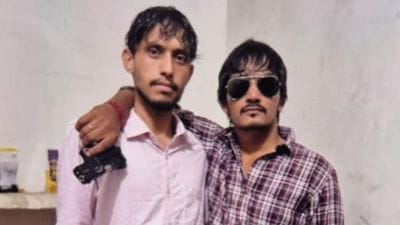Musharraf has to be pushed for polls, says US think tank
Observing that Pakistani President Pervez Musharraf continues to get international support because of his perceived cooperation in the war o...

Observing that Pakistani President Pervez Musharraf continues to get international support because of his perceived cooperation in the war on terror, a US-based think tank has urged democratic powers to press the military ruler to hold polls instead of enduring his ‘‘authoritarian behaviour’’ for short-term security cooperation.
In a new report, the International Crisis Group, also warned that instability in Pakistan will worsen and sectarian conflict spin out of control unless Musharraf, who has sought domestic and international legitimacy through a ‘‘civilian facade’’ ceded power to civilians and removed curbs on the moderate parties.
The think tank asks major democratic powers, including the US, to press Musharraf, even at the pain of losing aid, to hold free and fair elections. ‘‘The international community should make clear that its support—which has bolstered Musharraf’s claim to legitimacy—will quickly evaporate unless he shows he is serious about taking steps towards democratic reforms,’’ said Robert Templer, director of the Crisis Group’s Asia programme.
In addition to halting its pressure tactics on mainstream parties, the think tank asks Pakistan’s military government to appoint an independent federal election commission, refine and liberalise party finance laws, lift the ban on student unions and allow parties to establish their own requirements for the election of their leaders.
The report said the mainstream political parties must also become serious about internal reform if they are to steer Pakistan towards democracy and political stability. The parties, it said, need to promote internal discipline and accountability, better organise their grassroots base and allow more party workers to play meaningful roles in the decision making process.
Musharraf’s marginalisation of moderate political voices, it pointed out, has allowed religious parties to fill a political vacuum, and their increasing strength, if left unchecked, could erode regional stability.
The report credits the Pakistan People’s Party and the Pakistan Muslim League with having regained some of the credibility they lost when they led governments during the flawed democratic transition of the 1990s. But their continuous subjugation to state coercion, coupled with their own internal weaknesses, leaves in question whether they can counter an interventionist military.
N.Korea nuke ties closed chapter: Pak
SEOUL: Pakistan has given South Korea all the information it has about suspected exchanges of nuclear technology with North Korea and considers the issue “a closed chapter”, Pakistan’s prime minister said on Thursday. “As regards to any relationship or interaction with North Korea, we have none any more,” Shaukat Aziz said in Seoul, ahead of meetings with South Korean officials. “Whatever information we have, we have shared with our friends in South Korea,” Aziz said. “This is a closed chapter”. REUTERS
Photos





- 01
- 02
- 03
- 04
- 05


























